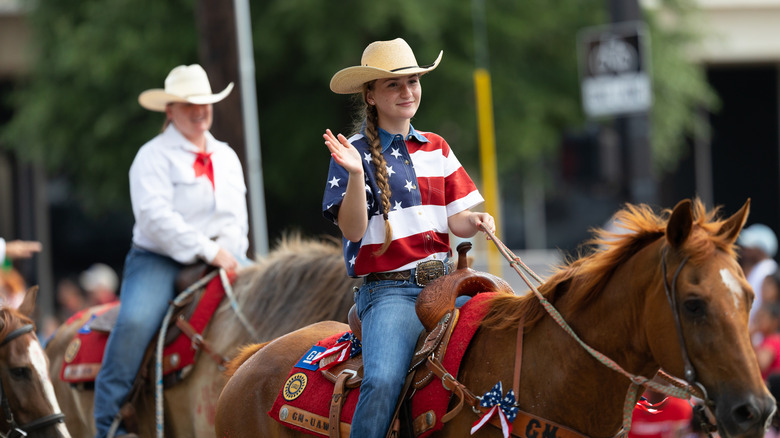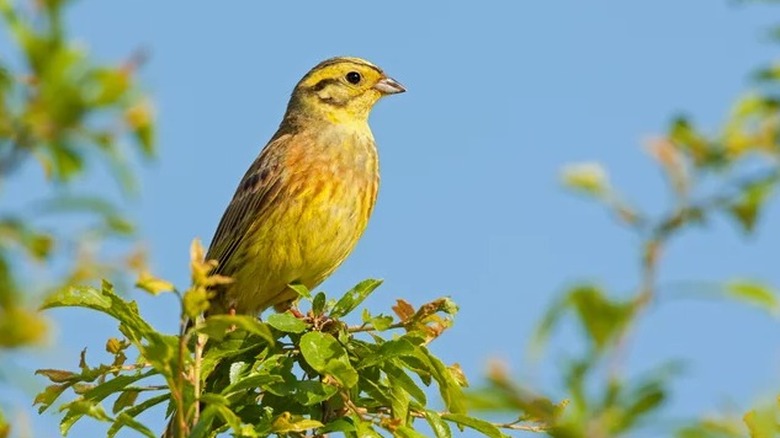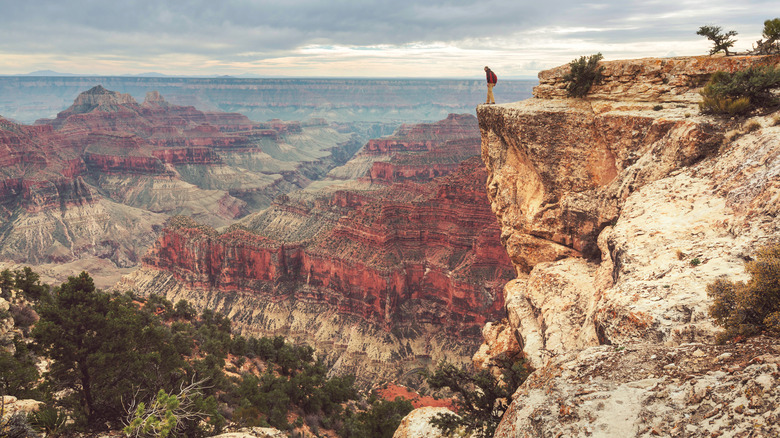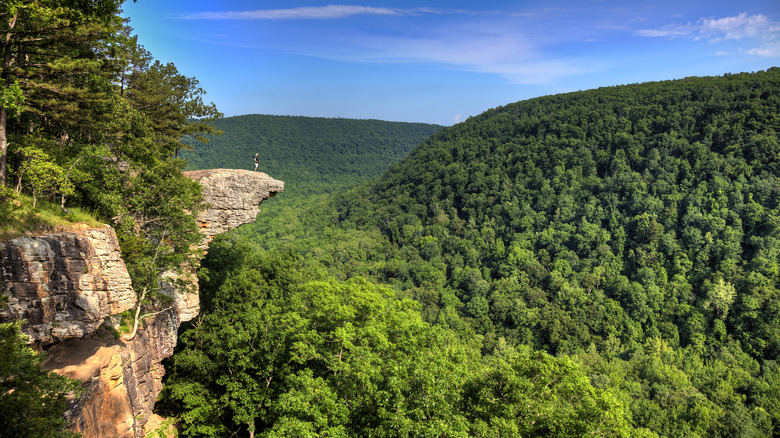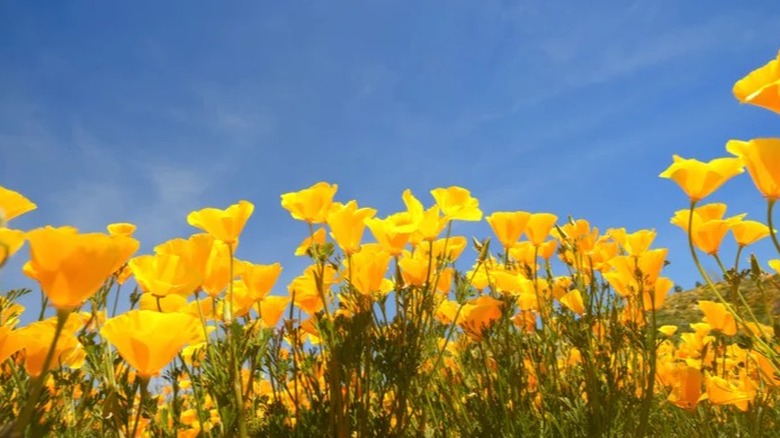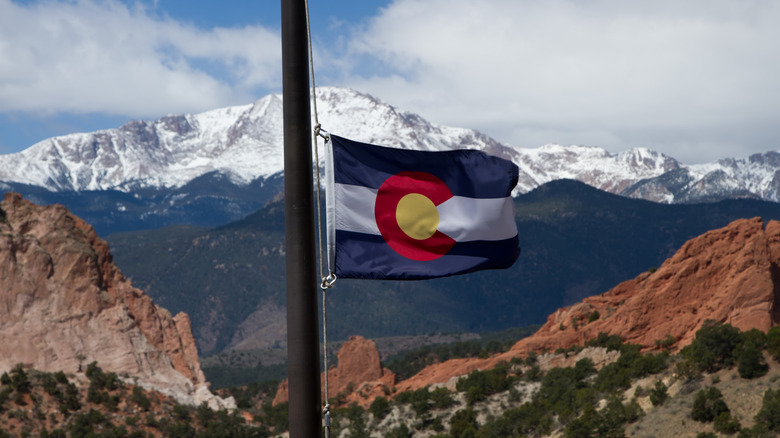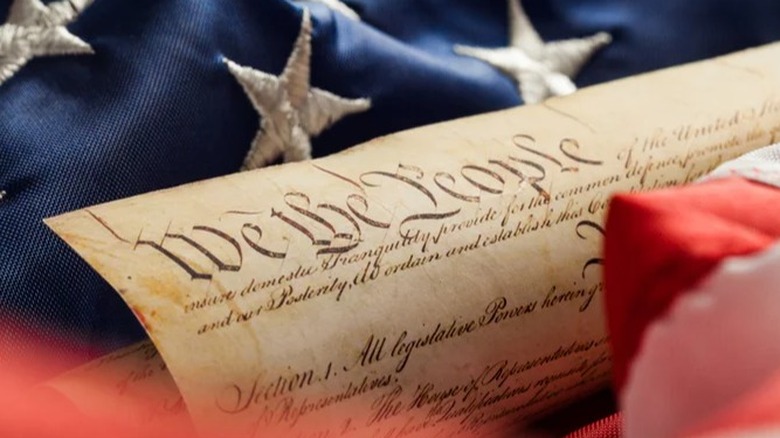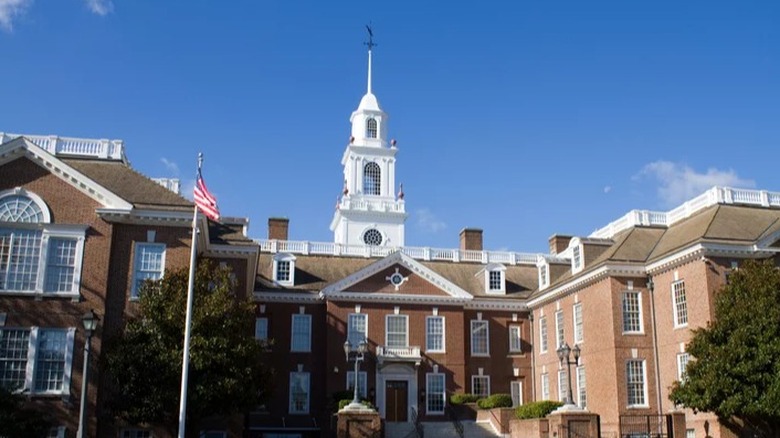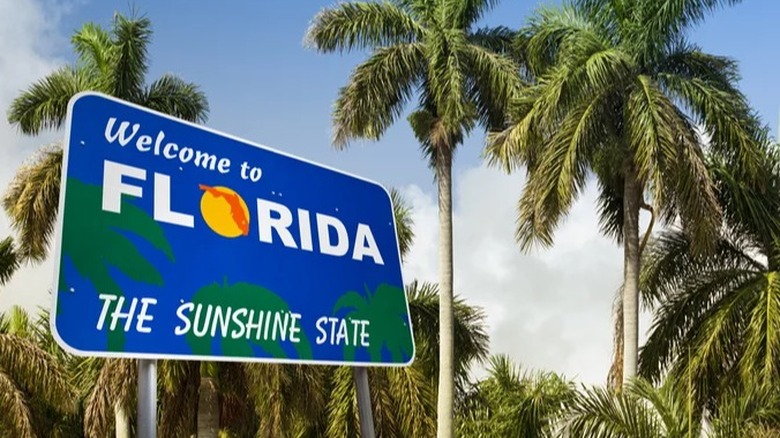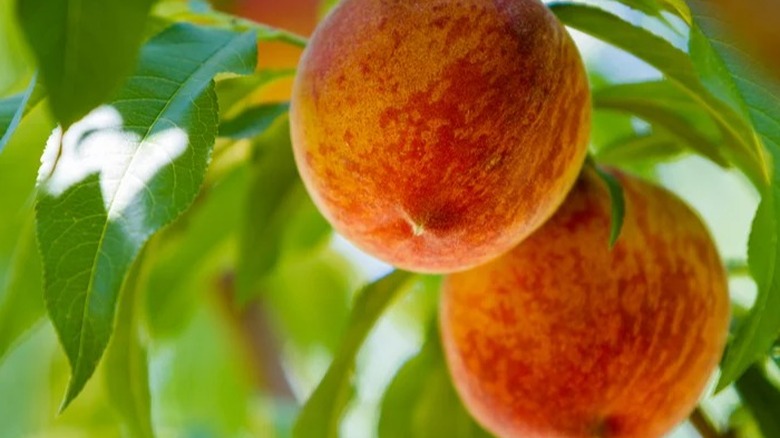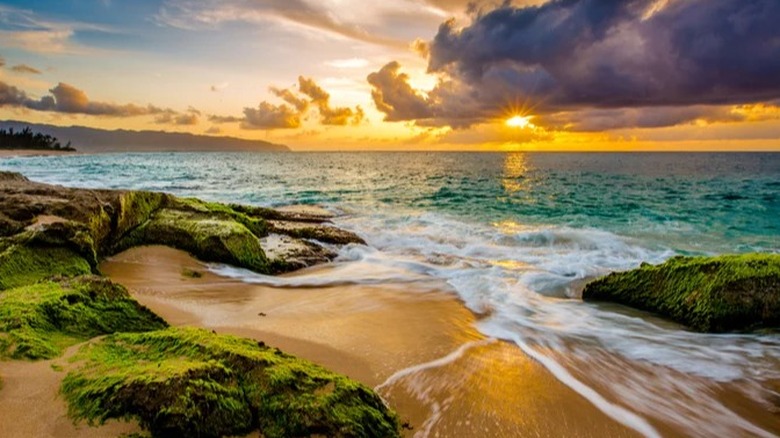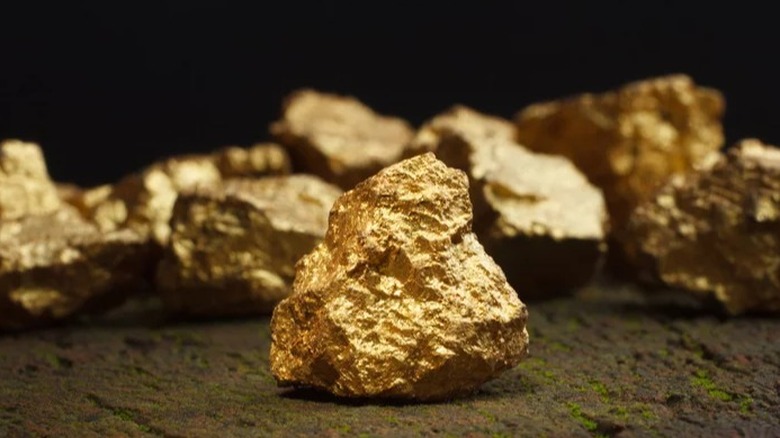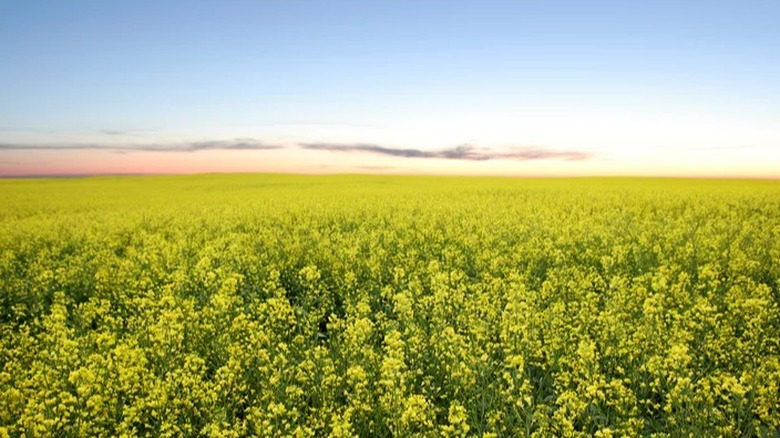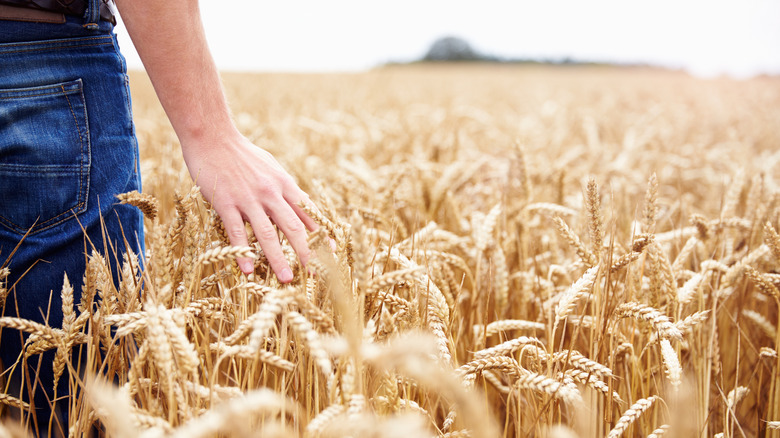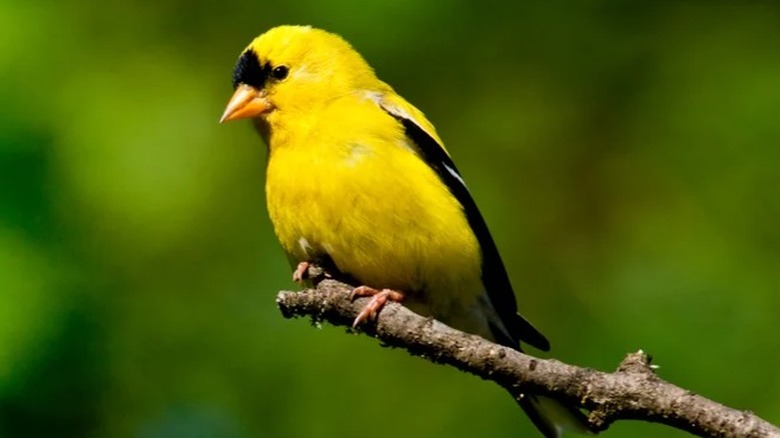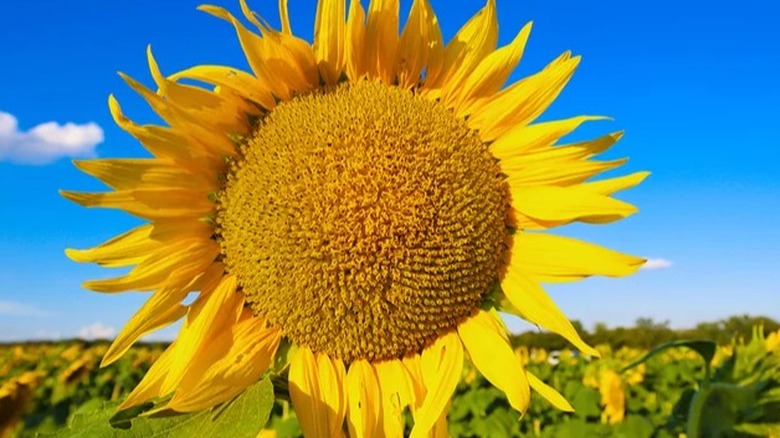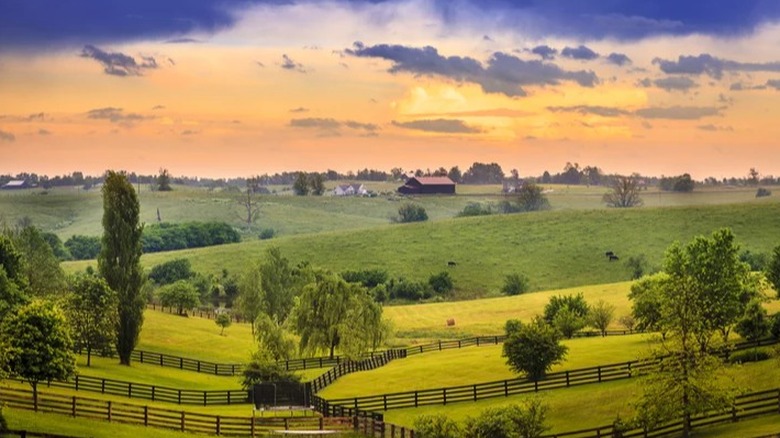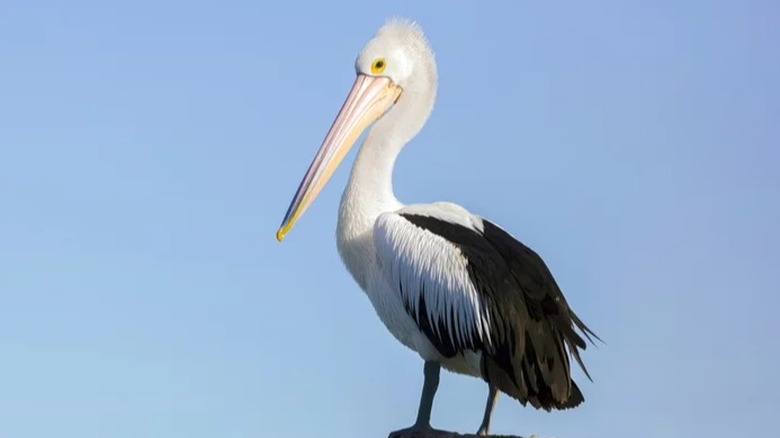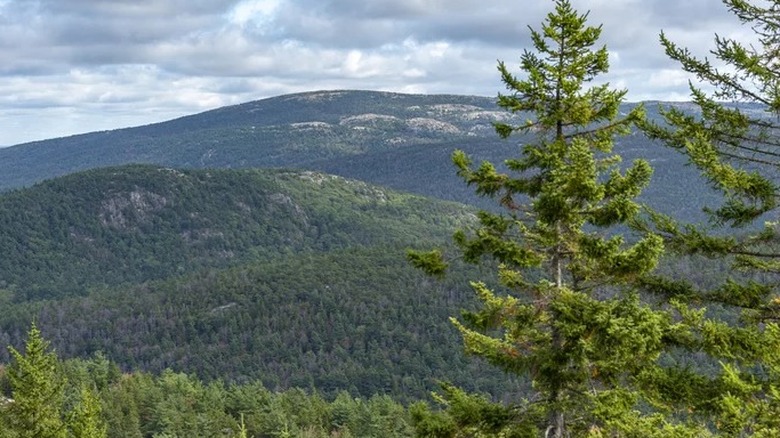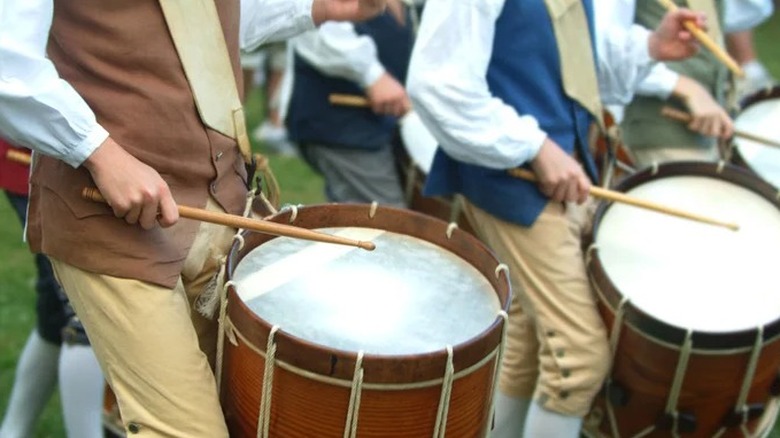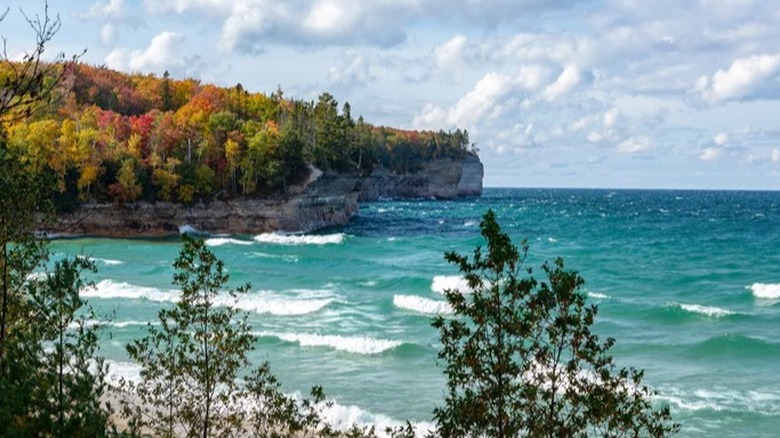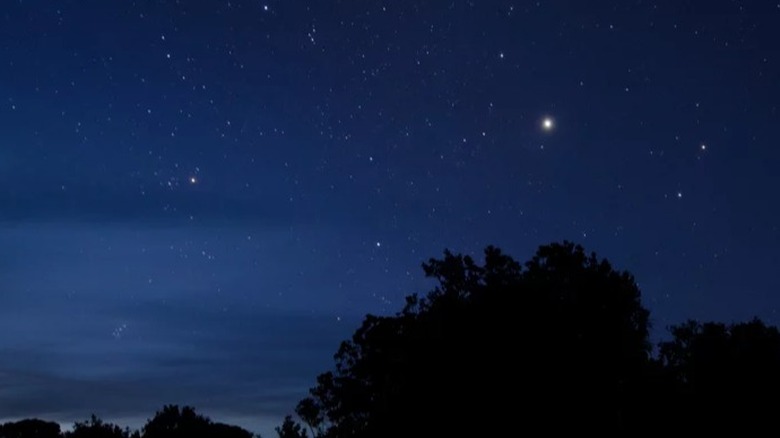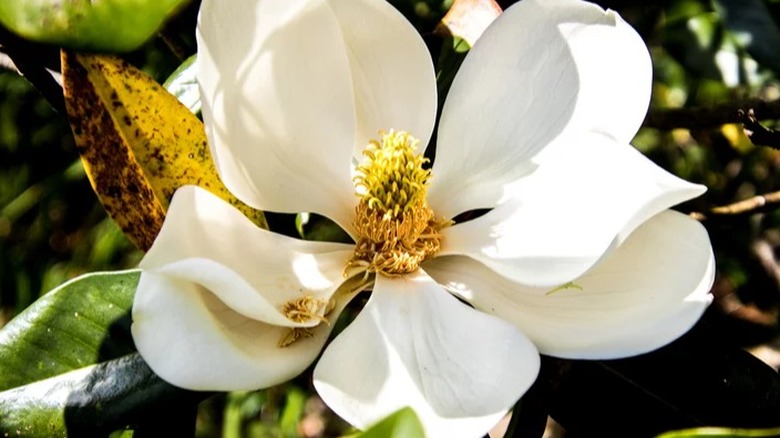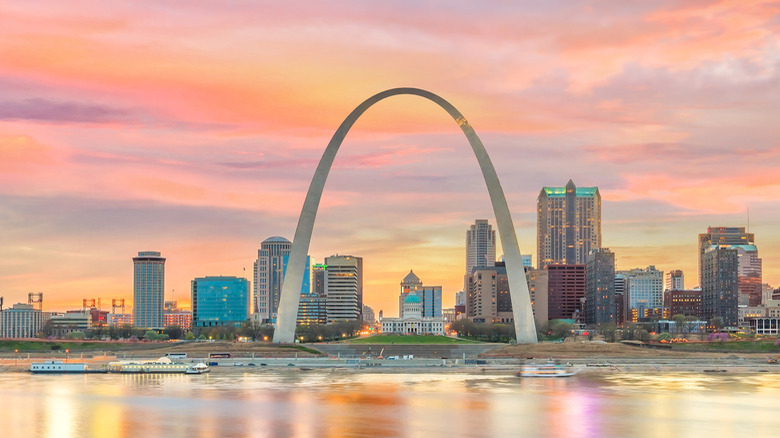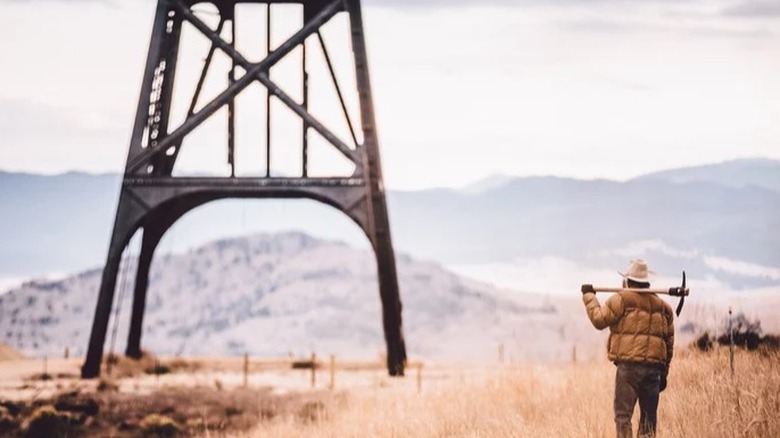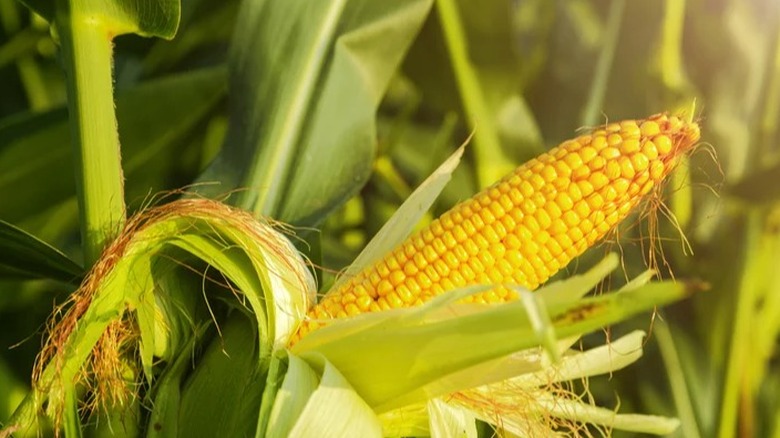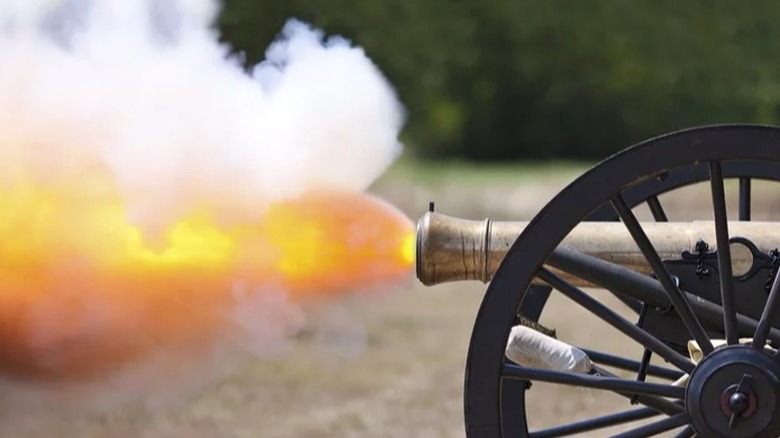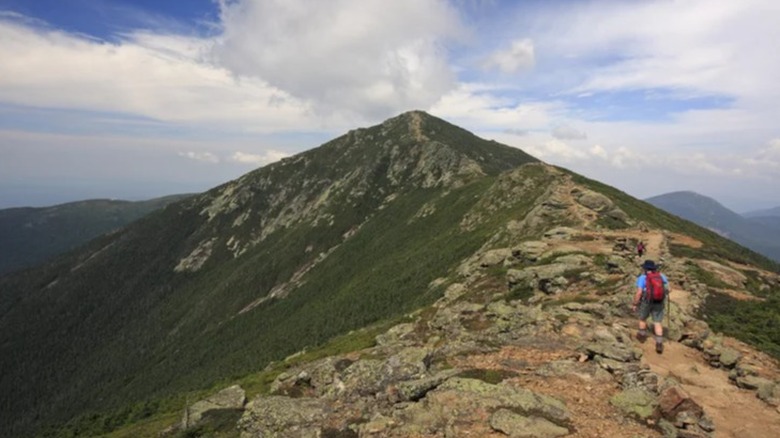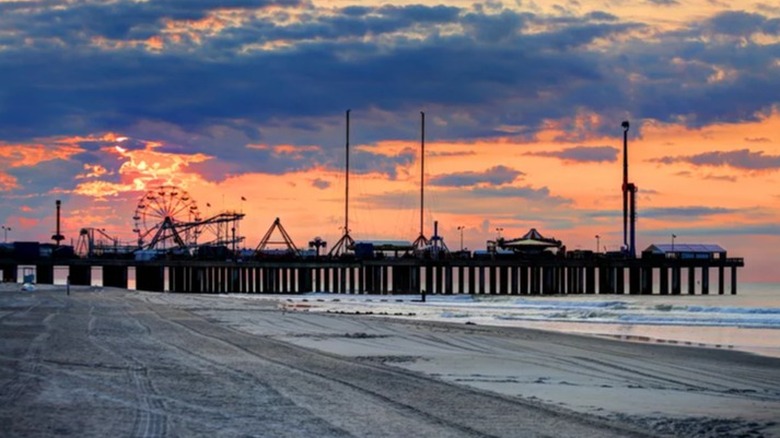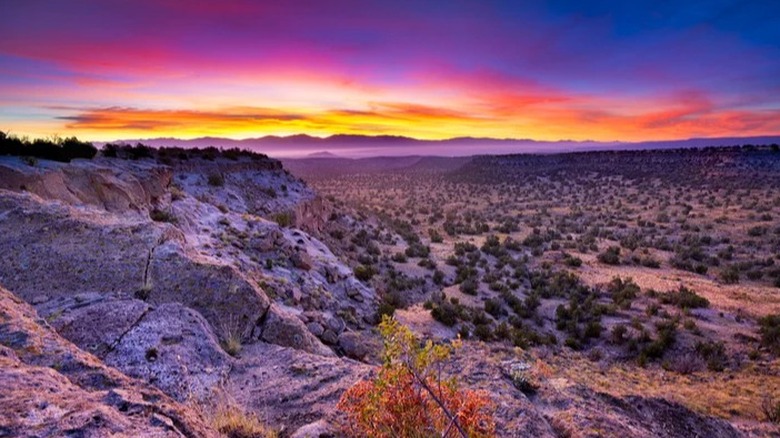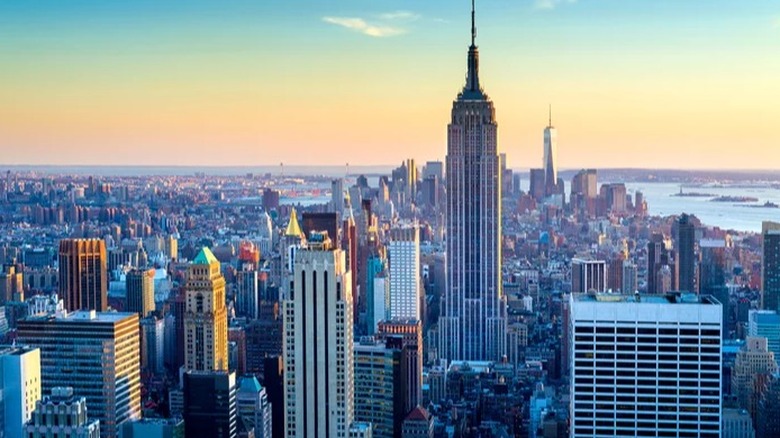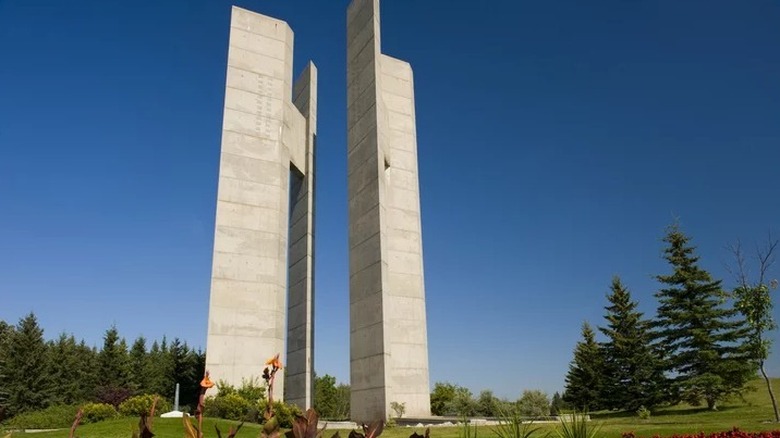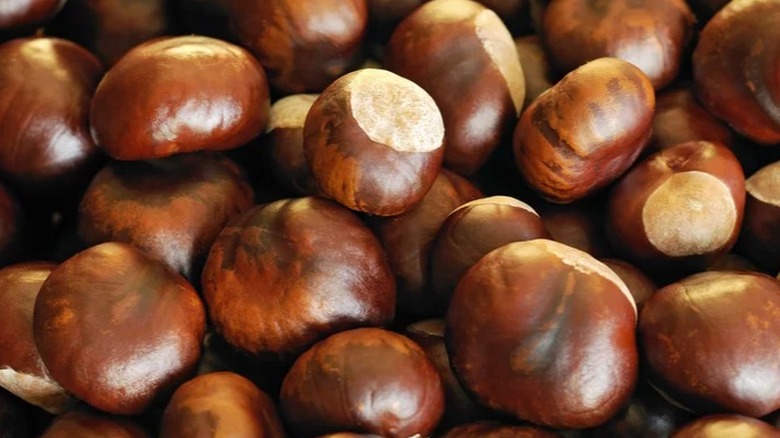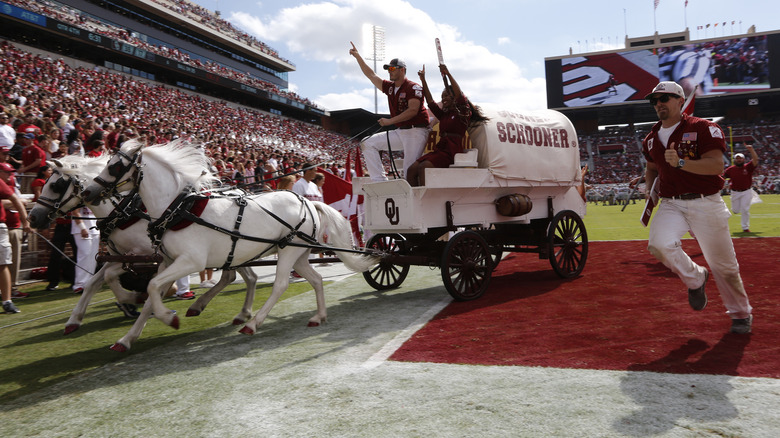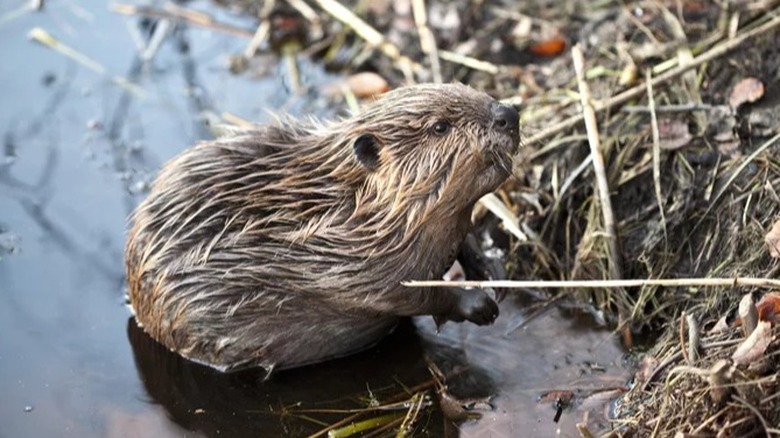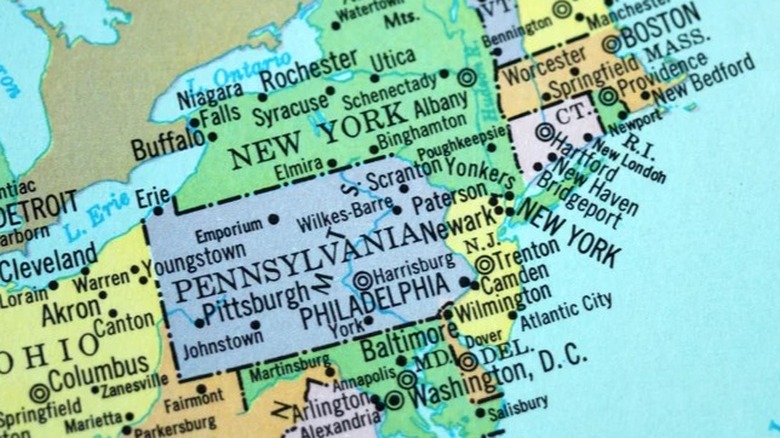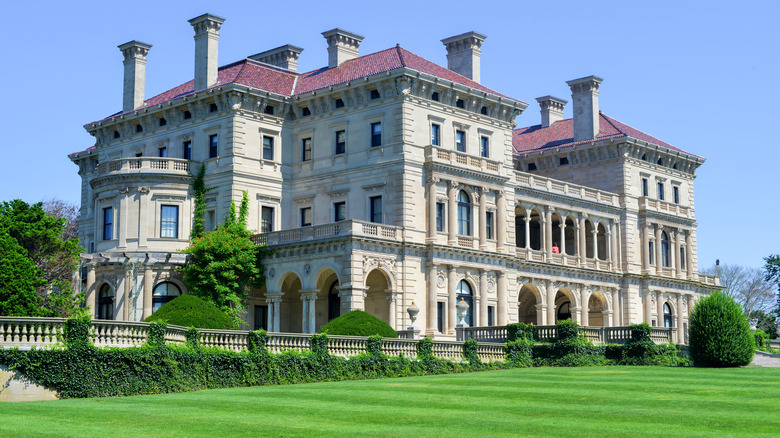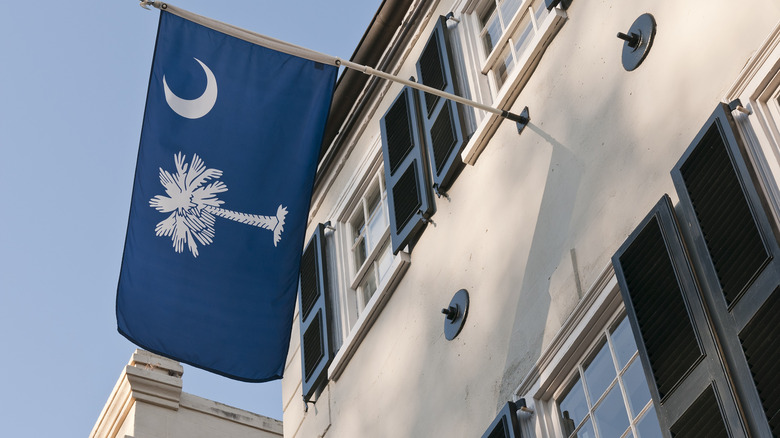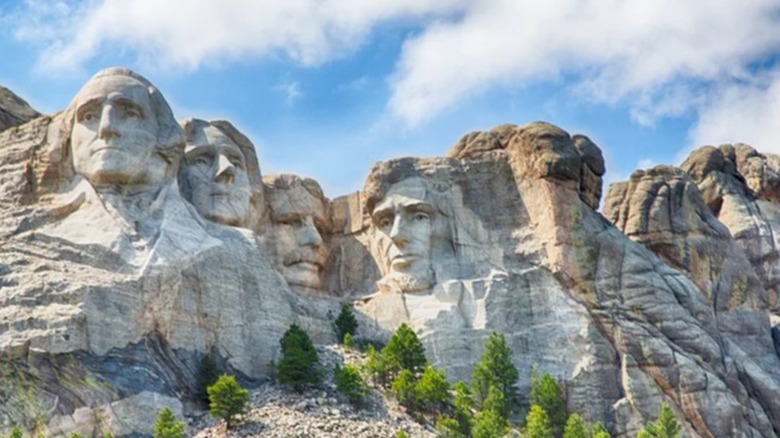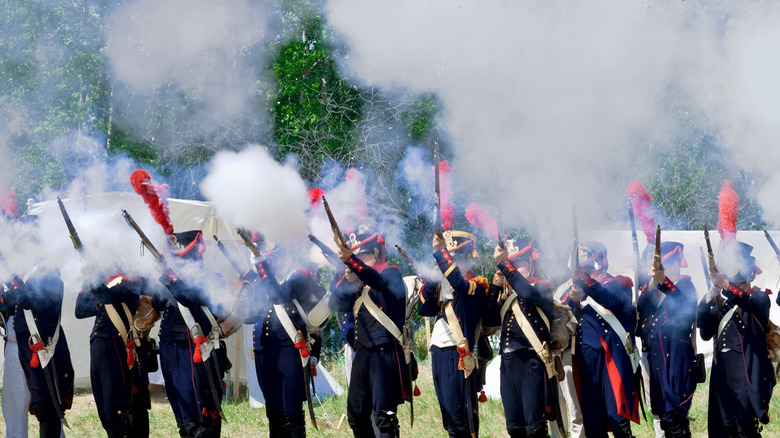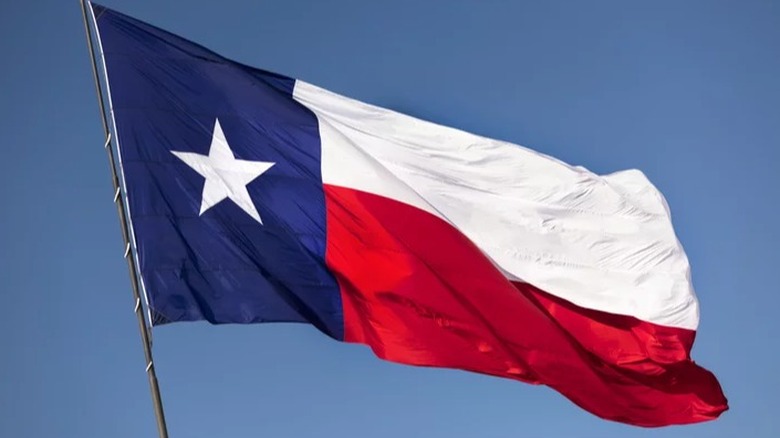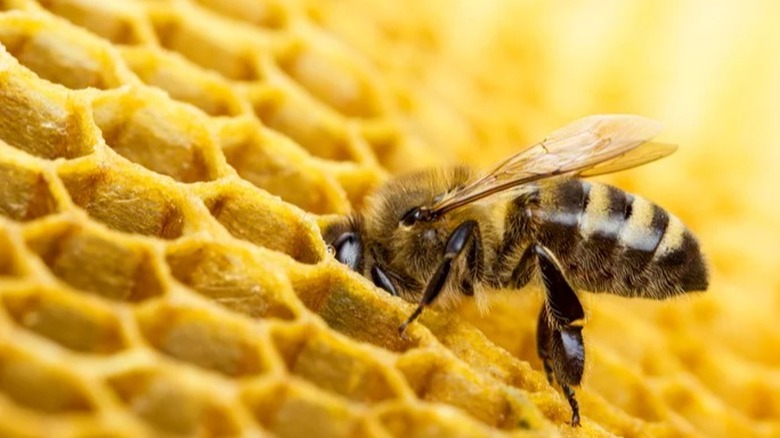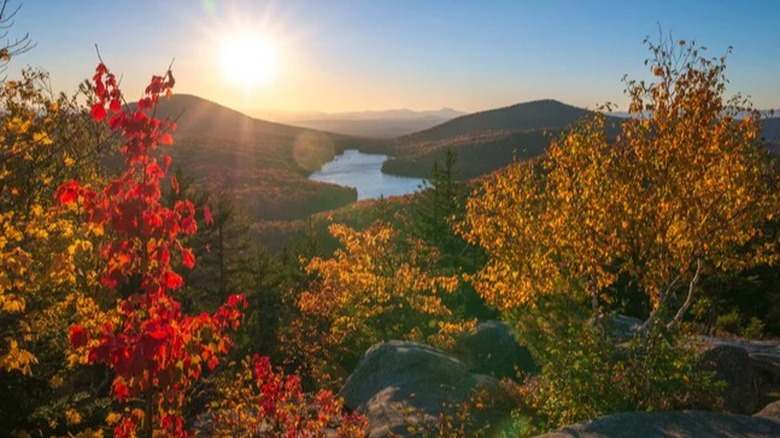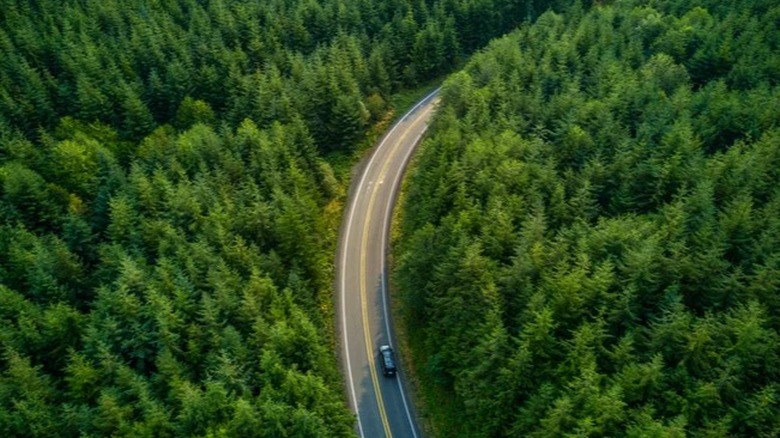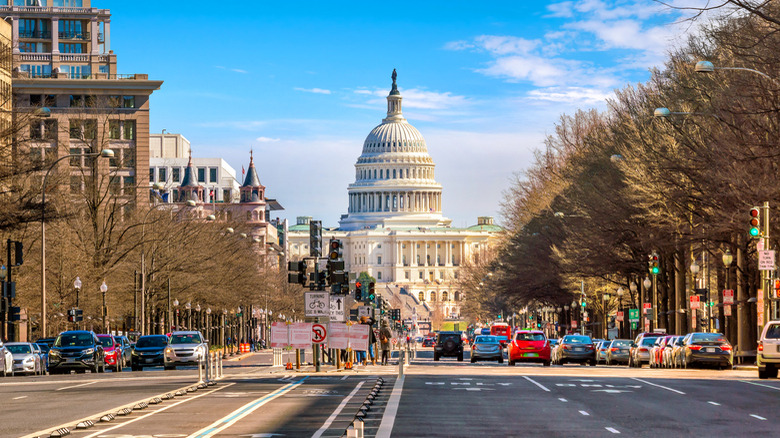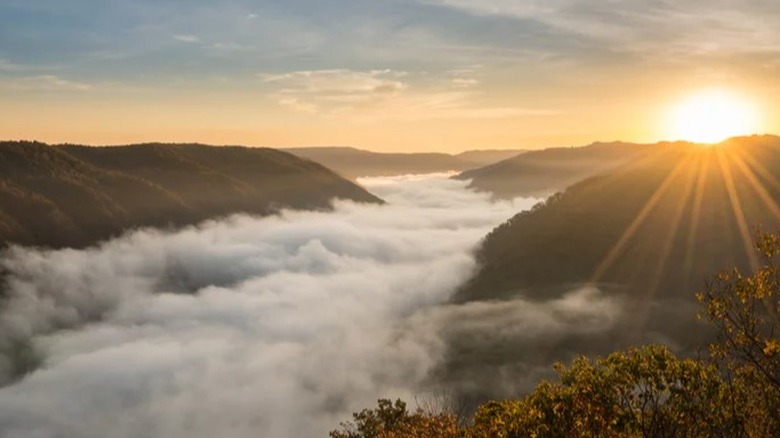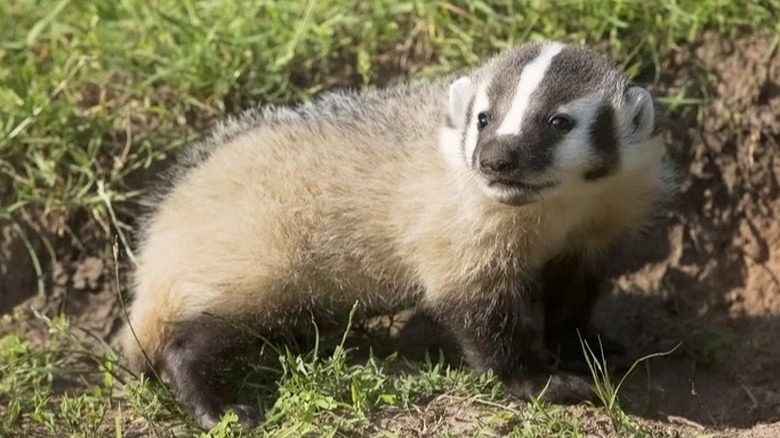How Every State Got Its Nickname
The United States is a remarkable country because it's an assembly of former colonies, territories and even independent nations that all banded together under one government. Despite joining the Union, each of the 50 states still has its own unique slang terms, traditions, culture, history and must-try foods, which over the years have inspired nicknames for the states.
These colorful nicknames celebrate the states' individual identities. Some have been around for centuries, with their origins lost over time, while others are recent inventions meant to promote each state's iconic qualities. If you've ever wondered what a Tar Heel actually is or why a state not known for agriculture is called the Garden State, here's how every state in the U.S. got its nickname.
Alabama: The Yellowhammer State
Alabama doesn't have an official nickname, but it got the nickname "the Yellowhammer State" during the Civil War. A company of Alabama soldiers wore uniforms trimmed with yellow, which earned them comparisons with the yellowhammer bird, which has bright yellow feathers underneath its wings and tail. Also known as a flicker woodpecker, the yellowhammer is the state bird of Alabama.
Alaska: The Last Frontier
Also known as the Land of the Midnight Sun, Alaska's official nickname is the Last Frontier. It is the least densely populated of the U.S. states and draws adventurous visitors eager to explore its wild, breathtaking landscapes.
Arizona: The Grand Canyon State
One of America's world-famous landmarks is the Grand Canyon, located in the northern part of Arizona. The state has embraced its iconic natural wonder and adopted the Grand Canyon State as its official nickname.
Arkansas: The Natural State
Arkansas officially adopted the nickname the Natural State in 1995 to celebrate the state's stunning natural scenery. Prior to that, Arkansas had two different official nicknames: the Wonder State from 1923 to 1947 and the Land of Opportunity from 1947 to 1995.
California: The Golden State
One of the first nicknames for California was the Eldorado State, inspired by the legendary city of gold. Once gold was discovered there, California became synonymous with gold mining. The state is also known for its beautiful flowers, including the golden yellow poppies that bloom there each spring. That's why today its official nickname is the Golden State.
Colorado: The Centennial State
A fun fact that history buffs might know is that Colorado is nicknamed the Centennial State because it joined the Union in 1876, 100 years after the adoption of the Declaration of Independence.
Connecticut: The Constitution State
Connecticut's official nickname is the Constitution State, despite the fact that Delaware was the first state to ratify the U.S. Constitution in 1787. Instead, the state claims to have the first written constitution in U.S. history with the state's founding document, the Fundamental Orders of Connecticut, written in 1639.
Delaware: The First State
Delaware doesn't let Connecticut hog the history spotlight, as its nickname references the fact that it was the first state to ratify the U.S. Constitution. The nickname was officially adopted in 2002 after being requested by Anabelle O'Malley's first-grade class at Mount Pleasant Elementary School in Wilmington, an adorable heartwarming story.
Florida: The Sunshine State
The Sunshine State was adopted as Florida's official nickname in 1970. The state has a toasty tropical and subtropical climate and an average 230 days of sunshine a year, making it a popular beach destination — though there are plenty of things to do in Florida that aren't Disney or the beach.
Georgia: The Peach State
Georgia's most popular nickname is the Peach State, in reference to its official state fruit and the importance of the produce to the state's agricultural economy. Despite its association with the fruit, Georgia hasn't been the country's leading producer of peaches in decades. That distinction now belongs to California.
Hawaii: The Aloha State
Sometimes referred to as the Pineapple State for its iconic produce or the Youngest State because it was the last to join the Union, Hawaii's official "popular name" was adopted in 1959, the same year it became a state. Hawaii picked the nickname the Aloha State in reference to the hospitality and culture of native Hawaiians. It might be no surprise then that Hawaii is among the happiest states in America.
Idaho: The Gem State
Mining lobbyist George M. Willing proposed the made-up name "Idaho" as the name for what is now Colorado, claiming the word was an Indian name that meant "Gem of the Mountains." While Congress went with another name for Colorado after learning the name was nonsense, it came into popular use for towns and landmarks like the newly discovered Idaho Mines. The territory was named Idaho due to its large deposits of gold, silver, gems and minerals.
Illinois: The Prairie State
While Illinois doesn't have an official state nickname, it does have an official prairie grass and a designated Illinois Prairie Week, living up to its popular nickname of the Prairie State. Illinois is perhaps more famous for its official state slogan: "The Land of Lincoln."
Indiana: The Hoosier State
The Hoosier State is the official nickname of Indiana, and a person from Indiana is known as a Hoosier. There are many theories on the origin of the term but no definite answers, though it can be traced back to the early 1830s. Among the theories are a popular greeting to an unexpected knock on the door with "Who's yere?" turning into Hoosier and the nickname of Indiana rivermen being "husher" transforming into Hoosier. The Hoosier is also the mascot for Indiana University, a college that is known for its school spirit.
Iowa: The Hawkeye State
Iowa was ahead of the curve when it came to a state nickname, adopting one eight years before it even became a state. Two men from Burlington are credited with popularizing the nickname the Hawkeye State based on a character in the popular book "The Last of the Mohicans." Despite having a bird-like name and being the University of Iowa mascot, a Hawkeye isn't a real bird. Iowa's state bird is actually the eastern goldfinch, also known as the American goldfinch.
Kansas: The Sunflower State
The cheerful sunflower is the official state flower of Kansas. It appears on the state flag and crops up in rolling fields of blooming wildflowers throughout the state, inspiring Kansas' most popular nickname, the Sunflower State.
Kentucky: The Bluegrass State
The most common nickname for Kentucky references its famed tall grass with a blue cast. Though bluegrass is actually green, in the spring, it produces blue buds that make fields of the grass seem blue-tinged from afar. Bluegrass is a genre that was declared Kentucky's official state music, along with its other state symbols, including its famous official state foods.
Louisiana: The Pelican State
Louisiana is so proud of its distinctive brown pelican that it put the bird on the state flag, seal and U.S. mint bicentennial quarter. That's why this state known as a culinary destination has embraced the nickname the Pelican State.
Maine:The Pine Tree State
Some of the most enchanting forests in the country grow in Maine, and this claim to fame has inspired many emblems of Maine. The state nickname is the Pine Tree State, and a pine tree is featured on Maine's flag, seal and in the background of the state quarter. The white pine is the state tree, and the white pine cone and tassel is the state flower of Maine.
Maryland: The Old Line State
The exact origins of Maryland's nickname, the Old Line State, have been muddled over the centuries, though one widely accepted story is that the "old line" was a term of affection bestowed by General George Washington to the state's line troops who courageously served in the Revolutionary War.
Massachusetts: The Bay State
Before it was officially nicknamed the Bay State, Massachusetts was the Massachusetts Bay Colony until "bay" was dropped from the name when it entered the Union in 1788. However, the state's five bays — Massachusetts Bay, Quincy Bay, Narragansett Bay, Buzzards Bay and Cape Cod Bay — are still its most defining natural features and offer beauty that only East Coasters know about.
Michigan: The Great Lakes State
One of Michigan's popular nicknames is the Great Lakes State, which is featured on its commemorative bicentennial quarter. Michigan touches four of the five Great Lakes, making it a great destination for outdoor adventures. Michigan is also known as the Wolverine State, despite not being home to this animal. The nickname's origins aren't clear but one legend goes that during the 1835 Toledo War between Michigan and Ohio, Ohioans described people from Michigan as being as vicious and bloodthirsty as wolverines.
Minnesota: The North Star State
Minnesota's state motto is "L'etoile du nord," which is French for "the North Star." This evolved into one of the state's most popular nicknames, the North Star State. The state also promotes itself as the Land of 10,000 Lakes because of the many, many places to enjoy outdoor water activities on its gorgeous, blue waters.
Mississippi: The Magnolia State
The magnolia has become synonymous with Mississippi, serving as the official state tree and state flower. Its nickname, "The Magnolia State," appears on Mississippi's commemorative state quarter released in 2002.
Missouri: The Show-Me State
Missouri's nickname, the Show-Me State, is not official, but it's widely used and has a unique origin story. In an 1899 speech, Congressman Willard Duncan Vandiver said: "Frothy eloquence neither convinces nor satisfies me. I am from Missouri. You have got to show me." This became a self-deprecating shorthand for Missouri stubbornness, which can be a somewhat endearing quality until it becomes toxic.
Montana: The Treasure State
Montana's most popular unofficial nickname is the Treasure State because of its rich mineral resources. Montana's state motto — "Oro y Plata," Spanish for "gold and silver" — also references this.
Nebraska: Cornhusker State
While plenty of state schools get their mascot from the state nickname, Nebraska's situation is the opposite. In 1945, the state adopted the new nickname the Cornhusker State, replacing its previous nickname, the Tree Planters State, in honor of the nickname for the University of Nebraska football team. Corn is one of the state's major crops and was husked by hand by early settlers, earning Nebraskans the moniker "cornhuskers."
Nevada: The Battle Born State
While many people are familiar with Las Vegas' nickname, Sin City, they might not be familiar with the state of Nevada's nickname. Nevada is known as the Battle Born State because it acquired statehood in the middle of the country's deadliest conflict. Nevada joined the Union in 1864 during the Civil War. This was a strategic move by the Union as the new state only had one-fifth of the population required for statehood.
New Hampshire: The Granite State
Despite the fact that less than half of New Hampshire's bedrock is actually made of granite, it's earned the nickname the Granite State due to its granite quarrying industry. Granite is the official state rock of New Hampshire, which is also home to one of the most majestic mountains in the country.
New Jersey: The Garden State
Abraham Browning is credited with coining New Jersey's nickname, the Garden State, at the Philadelphia Centennial exhibition in 1876. He described the state as a barrel full of good things but open at both ends, allowing Pennsylvania and New York to reach in and grab resources. The name evolved to refer to the state's floral and agricultural produce.
New Mexico: The Land of Enchantment
New Mexico officially adopted the nickname the Land of Enchantment in 1999. New Mexico's Tourist Bureau came up with the phrase as a way to bring in tourism to the state in the 1930s and 1940s. Today, tourists flock to the state for its charming mountain towns, outdoor adventure opportunities and more.
New York: The Empire State
While there's no clear reason why New York earned the nickname the Empire State, the term has been credited as originating with George Washington, who once referred to the state of New York as "the Seat of the Empire." This nickname inspired many names of streets and buildings around the state, including the Empire State Building in New York City, one of America's most-famous man-made marvels.
North Carolina: The Tar Heel State
North Carolina widely became known as the Tar Heel State because the state was a leading producer of tar and pitch for the naval industry in the 19th century. Calling someone a "tar heel" was a derogatory slang term meaning they were working class. North Carolinians reclaimed the term around the Civil War as a point of pride, and it was eventually adopted as the mascot for the University of North Carolina.
North Dakota: The Peace Garden State
North Dakota's official nickname, the Peace Garden State, refers to the International Peace Garden on North Dakota's border with Canada. The state also has other nicknames, including the Roughrider State, a reference to Theodore Roosevelt, who famously spent time there throughout his life.
Ohio: The Buckeye State
The use of the name "Buckeye" to refer to an Ohioan could date back as early as the 18th century. The people and the prolific plant became synonymous, especially after Ohioan William Henry Harrison ran for president. The nut of this tree was so named because its shape, size and color resemble the eye of a buck deer. In 1953, the Buckeye State became Ohio's official nickname. Buckeyes are also a sweet treat and regional dessert that everyone should try.
Oklahoma: The Sooner State
Oklahoma's nickname is the Sooner State. In 1889, people rushed to central Oklahoma, where the U.S. government had made millions of acres of land available to settlers on a first-come, first-served basis. On April 22 of that year at noon, a pistol was fired to signal that people could make a mad dash to claim land — but some people had snuck into the area in advance and hid to be able to claim land "sooner" than the official start time. Previously a disparaging term, the nickname's meaning was reversed in 1908 when the University of Oklahoma named its football team the Sooners.
Oregon: The Beaver State
The West Coast state of Oregon is known as the Beaver State. The beaver is the official state animal as well as the mascot for Oregon State University. Demand for beaver pelts is what drove trappers further west in the United States and ultimately led to Oregon joining the Union.
Pennsylvania: The Keystone State
A keystone, or capstone, is the stone piece at the apex of an arch or vault. Geographically, Pennsylvania was located in the middle of the original "arch" of 13 colonies. It also played a vital supporting role in the political and economic development of the early United States. Both these meanings helped popularize the nickname the Keystone State.
Rhode Island: The Plantation State
Rhode Island has the only state nickname that's actually a shortening of its official name. The smallest state's full name is the State of Rhode Island and Providence Plantations. Providence Plantations is simply the name of the first settlements in Rhode Island, though the state is also famous for its historic mansions.
South Carolina: The Palmetto State
Home to plenty of charming, historic towns, South Carolina gets its state nickname, the Palmetto State, from its state tree, the sabal palmetto, which appears on its flag and seal. Besides being found in the state, the tree has historical significance. During the Revolutionary War, a palmetto-log fort on Sullivan's Island withstood a British assault on Charleston Harbor, earning a big victory for the colonists.
South Dakota: The Mount Rushmore State
In 1992, South Dakota officially adopted the nickname the Mount Rushmore State in honor of its most famous landmark. It also is home to underrated national parks such as Badlands National Park.
Tennessee: The Volunteer State
If you've ever wondered why the University of Tennessee's mascot is the Volunteers, it's tied to the state's nickname. Tennessee clinched the nickname the Volunteer State during the Mexican-American War when the federal government called for 2,800 people to help fight and more than 30,000 Tennessean soldiers volunteered. Whether or not you're from Tennessee, there are plenty of ways you can help your community, even from home.
Texas: The Lone Star State
Texas gets its nickname from the single star on its state flag and on the state seal, which were created after Texas won its independence from Mexico and became its own republic in 1836. Texas kept this design even after joining the Union in 1845 and has maintained a reputation for its weird, independent spirit.
Utah: The Beehive State
Utah's state name is the Beehive State, and that's not because it produces a lot of honey or has a large bee population. The state's first Mormon settlers chose this emblem to represent cooperation and hard work and to make a religious reference to the Biblical "land of milk and honey."
Vermont: The Green Mountain State
The Green Mountains don't just run through Vermont, they indirectly gave the state its name. Vermont comes from the French "vert mont," meaning "green mountain." The British seized the territory from France after the French and Indian War, and Vermont eventually joined the Union as the 14th state in 1790.
Virginia: Old Dominion
Nicknamed Old Dominion, Virginia was the first of the overseas dominions of the kings and queens of England, joining Ireland, Scotland and France under English rule. As a colony, Virginia also stayed loyal to King Charles I and his son Charles II during the English Civil War. The University of Virginia references this in its mascot; supporters of either Charles were known as "Cavaliers."
Washington: The Evergreen State
Seattle realtor C.T. Conover proposed the simple nickname the Evergreen State for Washington's lush evergreen forests. Though the nickname is widely used, it has never been officially adopted by the state legislature.
Washington, DC: The DMV
While Washington, D.C., doesn't have an official nickname, the metro area has been given a less-than-flattering nickname by residents: the DMV. Rather than the Department of Motor Vehicles, this stands for D.C., Maryland and Virginia.
West Virginia: The Mountain State
After splitting from Virginia, West Virginia became the 35th state in the Union and adopted the simple nickname the Mountain State. West Virginia is the only state that sits completely within the Appalachian Mountain system, making it one of the best places in the country for outdoor activities like hiking.
Wisconsin: The Badger State
Wisconsin is probably best known for its cheese, but its nickname has nothing to do with the dairy delight. Wisconsin is known as the Badger State, but not because wild badgers are prolific there. In the 1800s, miners dug tunnels into hillsides looking for lead ore and often lived in temporary caves they'd hollowed out, earning them comparisons to burrowing badgers.
Wyoming: The Equality State
Wyoming's nickname surprisingly doesn't come from its famous parks. Wyoming is known as the Equality State because it's the first state in the country that allowed women to vote, serve on juries and hold public office. However, Wyoming is also full of natural beauty and some of the most stunning views in the country.
